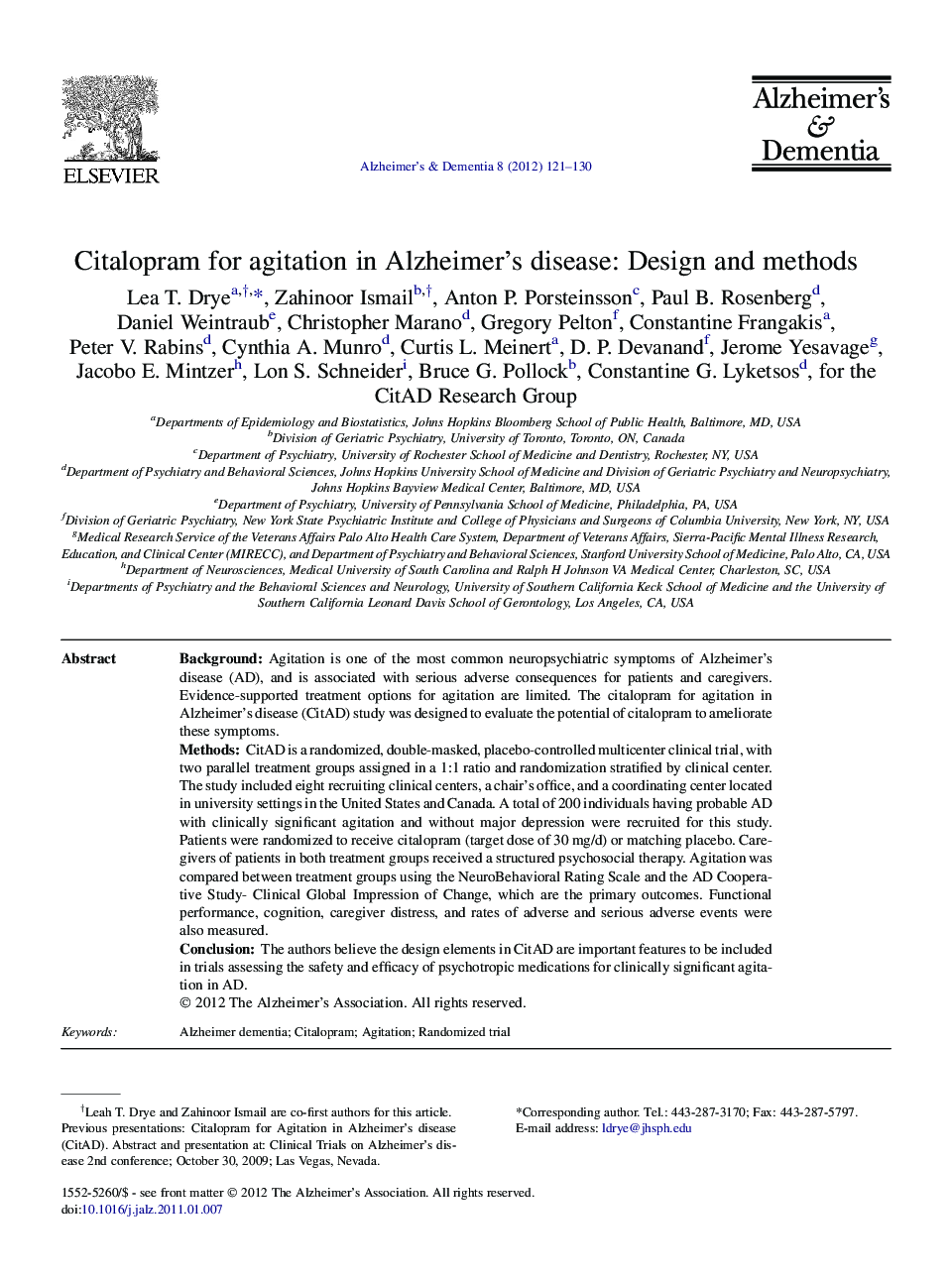| Article ID | Journal | Published Year | Pages | File Type |
|---|---|---|---|---|
| 5624634 | Alzheimer's & Dementia | 2012 | 10 Pages |
BackgroundAgitation is one of the most common neuropsychiatric symptoms of Alzheimer's disease (AD), and is associated with serious adverse consequences for patients and caregivers. Evidence-supported treatment options for agitation are limited. The citalopram for agitation in Alzheimer's disease (CitAD) study was designed to evaluate the potential of citalopram to ameliorate these symptoms.MethodsCitAD is a randomized, double-masked, placebo-controlled multicenter clinical trial, with two parallel treatment groups assigned in a 1:1 ratio and randomization stratified by clinical center. The study included eight recruiting clinical centers, a chair's office, and a coordinating center located in university settings in the United States and Canada. A total of 200 individuals having probable AD with clinically significant agitation and without major depression were recruited for this study. Patients were randomized to receive citalopram (target dose of 30 mg/d) or matching placebo. Caregivers of patients in both treatment groups received a structured psychosocial therapy. Agitation was compared between treatment groups using the NeuroBehavioral Rating Scale and the AD Cooperative Study- Clinical Global Impression of Change, which are the primary outcomes. Functional performance, cognition, caregiver distress, and rates of adverse and serious adverse events were also measured.ConclusionThe authors believe the design elements in CitAD are important features to be included in trials assessing the safety and efficacy of psychotropic medications for clinically significant agitation in AD.
